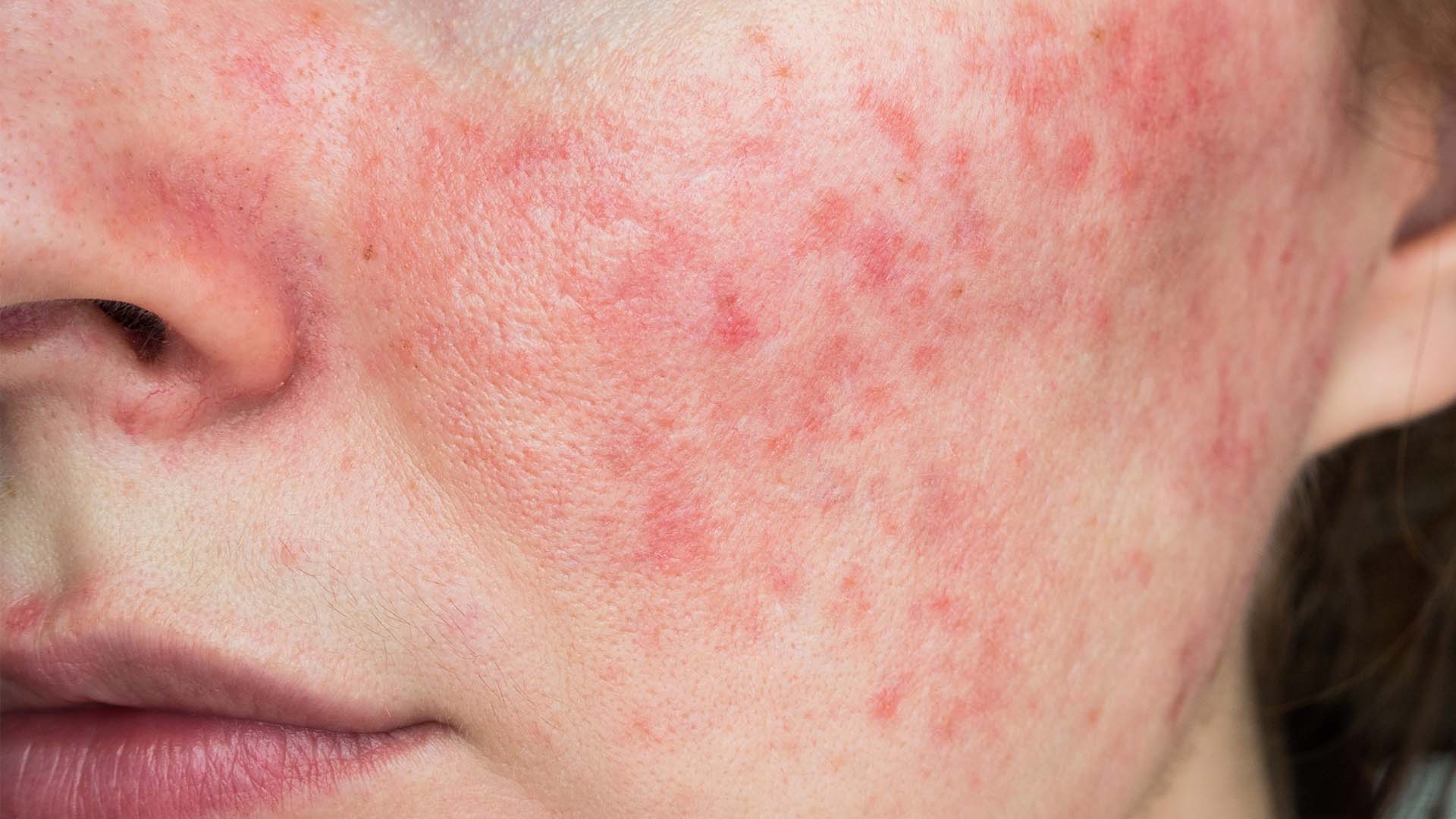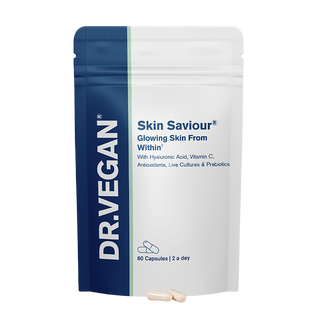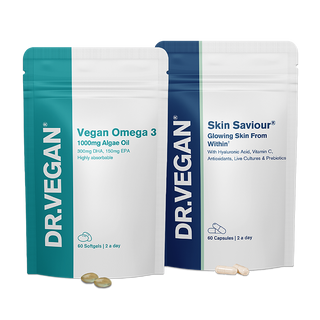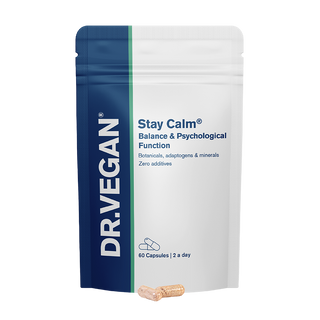5 Natural remedies for rosacea

Inflammatory skin conditions like rosacea, psoriasis, eczema and dermatitis are all linked to imbalances in the gut, and they're more common among both men and women above the age of 30. While no single cause has been identified, despite lots of research around the world, there are natural ways to help treat and manage rosacea.
Here our experts explain what is rosacea, the causes and triggers of rosacea, the common symptoms, and how to treat rosacea naturally. You may also enjoy reading about natural ways to treat eczema, and how to manage psoriasis.
What is Rosacea?
Rosacea is a chronic inflammatory skin condition that causes persistent redness of the face. It mostly affects women between the ages of 35 and 50 and particularly those with fair skin.
Understand your diet. Create your free Diet Profile.
What causes and triggers rosacea?
Although the exact cause of rosacea remains unknown, it is believed to be influenced by a combination of genetic, hormonal, gut health, dietary and environmental factors. Triggers such as spicy foods, sunlight, hot drinks, and alcohol can exacerbate symptoms. You may also enjoy reading the latest skin research and learning how wine can impact your skin.
There are however a few natural remedies and lifestyle modifications that can help manage rosacea and minimise flare-ups.
Rosacea and menopause
There is a link between rosacea and menopause, as symptoms of rosacea commonly appear or worsen during the onset of perimenopause and menopause. Hormonal fluctuations during this life stage are believed to play a role in triggering or worsening rosacea symptoms.
During perimenopause and menopause, oestrogen levels decrease, which can lead to increased inflammation and instability of blood vessels in the face. Oestrogen helps protect women's body's against inflammation, so decreased oestrogen can also affect the skin's barrier function, making it more susceptible to irritation. Discover how to care for your skin during menopause.
Menopause is also a time when many women experience common triggers of rosacea including hot flushes, increased stress, and changes in lifestyle. Learn more about 8 unusual signs of menopause, and the best foods and nutrition for during menopause.
Discover MenoFriend®
7 Common signs of rosacea
1. Facial redness
Persistent facial redness is one of the hallmark signs of rosacea. The central part of the face, including the cheeks, nose, forehead and chin, may appear flushed or have a consistent redness that may come and go.
2. Flushing
Individuals with rosacea may experience sudden episodes of facial flushing, characterised by a temporary deep redness or a sensation of heat on the face. Triggers such as spicy foods, hot drinks, sunlight, stress, or alcohol consumption can often provoke these flushing episodes.
3. Visible blood vessels
Over time, small blood vessels ('telangiectasia') may become visible on the surface of the skin, particularly in areas prone to redness. These blood vessels can appear as thin red lines or patterns on the face.
4. Bumps and pustules
'Papules' and 'pustules' resembling acne can develop on the face, particularly in the central areas affected by rosacea. These bumps are often inflamed and can be filled with pus. Unlike acne, however, the presence of blackheads is rare in rosacea. You may also enjoy reading 'How to get rid of acne'.
Skin Saviour®

5. Skin sensitivity
Rosacea-affected skin is typically sensitive and may feel stinging, burning or tight. It may also be more prone to dryness and irritation.
6. Eye symptoms
In some cases, rosacea can affect the eyes, causing symptoms such as redness, dryness, grittiness, watering, or a sensation of having something in the eye. This condition is known as 'ocular rosacea'.
7. Thickened skin
In more severe cases of rosacea, the skin on the nose, known as rhinophyma, may become thickened and enlarged. This can result in a bulbous, swollen appearance of the nose.
Tips on how to manage and avoid rosacea
1. Stress management
Stress is a common trigger for rosacea flare-ups, so make sure you practice relaxation techniques such as meditation, deep breathing exercises or yoga. Also consider natural supplements that can help you overcome stress, including the acclaimed Stay Calm and Ashwagandha KSM-66. You may also enjoy learning more about the foods and vitamins to help the body copy with stress.
2. Aloe Vera
Aloe vera is known for its soothing properties. Applying aloe vera gel to affected areas of your skin may help fight redness, inflammation and discomfort. Look for pure aloe vera gel without any added fragrances or preservatives.
3. Dietary changes
Certain foods can trigger rosacea. While triggers can vary from person to person, it may be helpful to identify and avoid common culprits such as spicy foods, hot beverages, alcohol and caffeine. Consuming anti-inflammatory foods such as green leafy vegetables, fruits, fish, and healthy fats into your diet may also be beneficial. The avoidance of inflammatory foods is also recommended, so make sure you avoid processed foods and ultra-processed foods, avoid any meal replacement and protein powder drinks, refined sugars and trans fats.
Learn more about 'The Dangers of Ultra-Processed Foods'.
4. Skincare tips
Choosing gentle, fragrance-free skincare products specifically formulated for sensitive skin is crucial for individuals with rosacea. Avoiding potential irritants such as alcohol, menthol, and harsh exfoliants can help prevent further inflammation and sensitivity. Look for products that contain ingredients like niacinamide, green tea extract, and ceramides, which have soothing and anti-inflammatory properties.
5. Supplements
There are also natural supplements that can help manage rosacea and reduce the risk of flare-ups.
Vegan Omega 3
Some studies suggest that certain supplements may have a positive impact on rosacea. Omega-3 fatty acids have anti-inflammatory properties and may help reduce redness and irritation associated with rosacea. Vegan Omega 3 softgels (with the optimal dosage of 300mg DHA and 150mg EPA per serving) provides a concentrated source of omega 3 to help keep inflammation under control.
Skin Saviour®
Some studies show probiotics may help manage rosacea by promoting a healthy gut microbiome. Skin Saviour® is an advanced formula developed by experts with clinically studies probiotics and vital nutrients to fuel your body's natural collagen production. Skin Saviour® reduces blemishes and fuels healthier, glowing skin, increasing the skin barrier function, and providing antioxidants to protect and nourish the skin from the inside out.
Skin Health Bundle

Summary
Natural remedies and lifestyle modifications can play a significant role in managing rosacea and reducing flare-ups. For best results, try combining all natural remedies together including stress management techniques, aloe vera, dietary changes, supplements and selecting gentle skincare products.
You may also enjoy reading:
- What men should know about skin health
- Best Foods and Vitamins for Healthy, Glowing Skin
- Why Zinc is so important for your immune system, hair & skin
- 6 tips for healthy skin
- How bad is tanning for skin health?
- 5 easy smoothie recipes for glowing skin
Discover our range of vegan vitamins and supplements.
Want to hear more from our nutritionists? Sign up to our email newsletter for insights and exclusive offers:



















